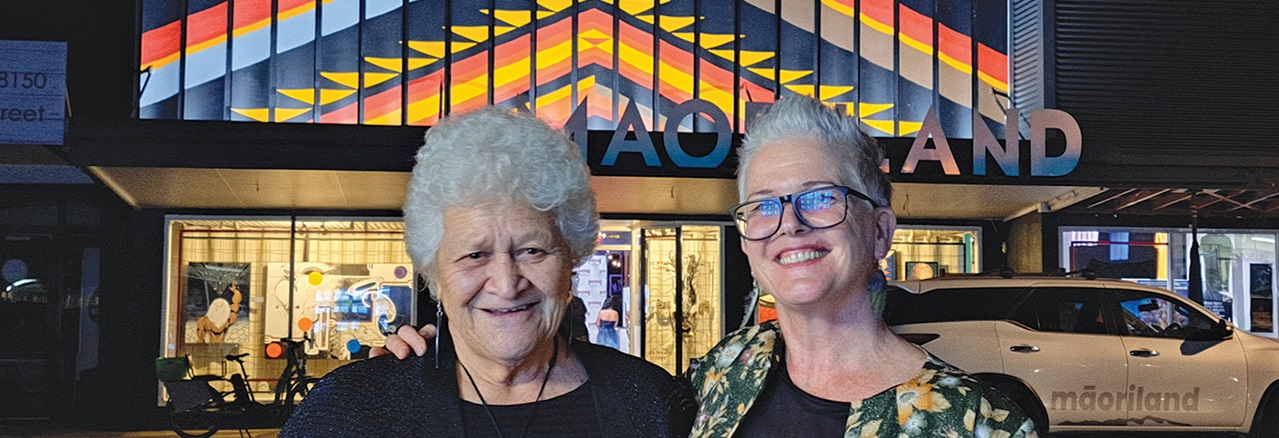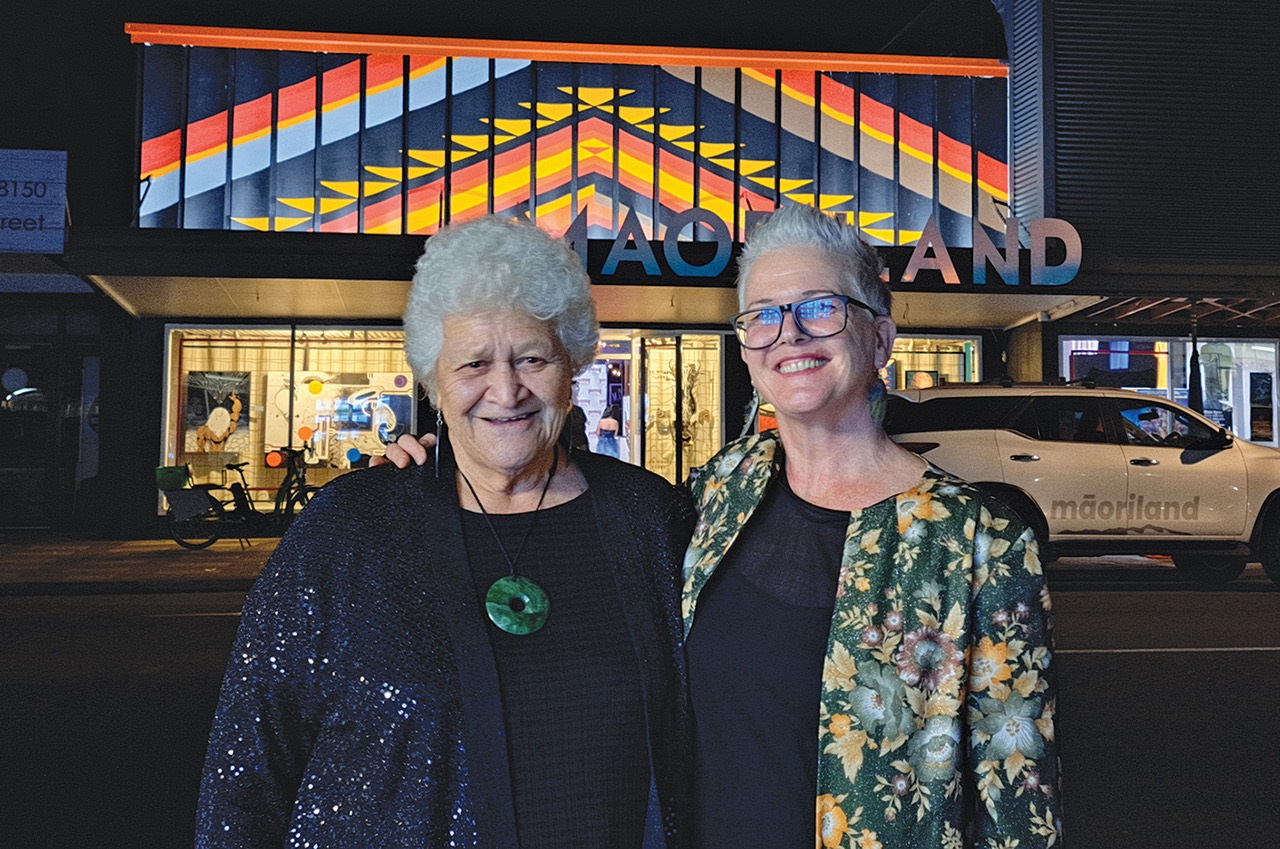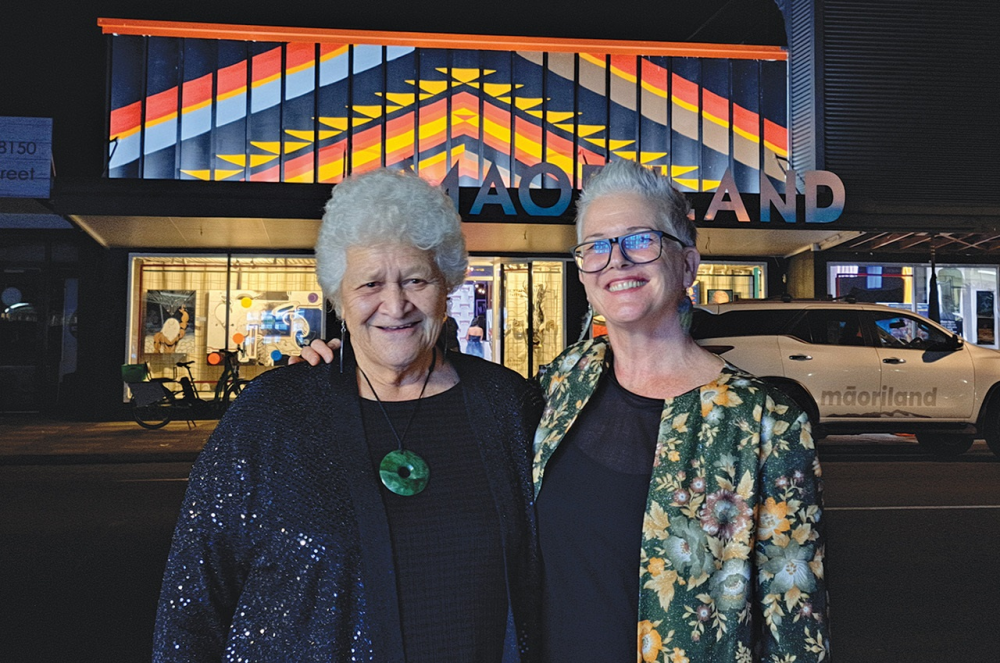
The Māoriland Film Festival (MFF) is now the largest indigenous film festival in the world, and this year will see the largest programme offered as well.
One hundred and sixty-eight films from 111 indigenous nations will screen in Ōtaki from March 20-24.
Now in its 11th year, MFF will offer 11 feature films, eight feature documentaries and 16 short film programmes.

Sonia Snowden and Emily Hakaraia at the 2022 Māoriland Film Festival.
Photo Ōtaki Today
Festival director Madeleine Hakaraia de Young says the number of eligible films submitted for programme consideration is the largest ever. Films for 2024 are coming in from Aotearoa, Australia, Canada, United States, Finland, Norway, Kazakhstan, Brazīl, Chile, Colombia, Cook Islands, Greenland, Fiji, India, Kenya, Marshall Islands, Palestine, Mexico, Nepal, Russia, Sierra Leone and Taiwan.
“Every year, we see the groundswell of indigenous storytelling continue to grow,” Madeleine says. “Māoriland is a global event so we prioritise bringing new communities and voices to the festival.
“It’s never been more important for indigenous voices to be heard. We see the power of film storytelling to grow empathy and create change.
“Every success in our indigenous screen community grows our ability to go further.
The theme of this year’s festival – Kia Tau Te Rongomau – is a call for peace. MFF has worked with Rachael Rakena to curate an exhibition on Ōtaki’s Main Street with artists Tame Iti, Regan Balzer, Johnson Witehira and Ngātaiharuru Taepa in response to this theme.
“We’re honoured to have these esteemed artists share their response to this theme, and to have them as our 2024 Māoriland Keynote at Rangiātea Church on Wednesday, March 20.”
Screenings will begin that evening with the
world premiere of season two of The Reciprocity Project, a series of short films that reframe the relationship we have with the Earth, other living beings, and one another. They ask: What does a “return” to land, language, and reciprocal practices mean to you and your community?
With seven films from seven nations (United States, Canada, Finland, Rotuman, Taiwan, Sierra Leone and Kenya), the project explores the time-honoured and current ways of indigenous being in the face of the current climate crisis.
OTHER STORIES


